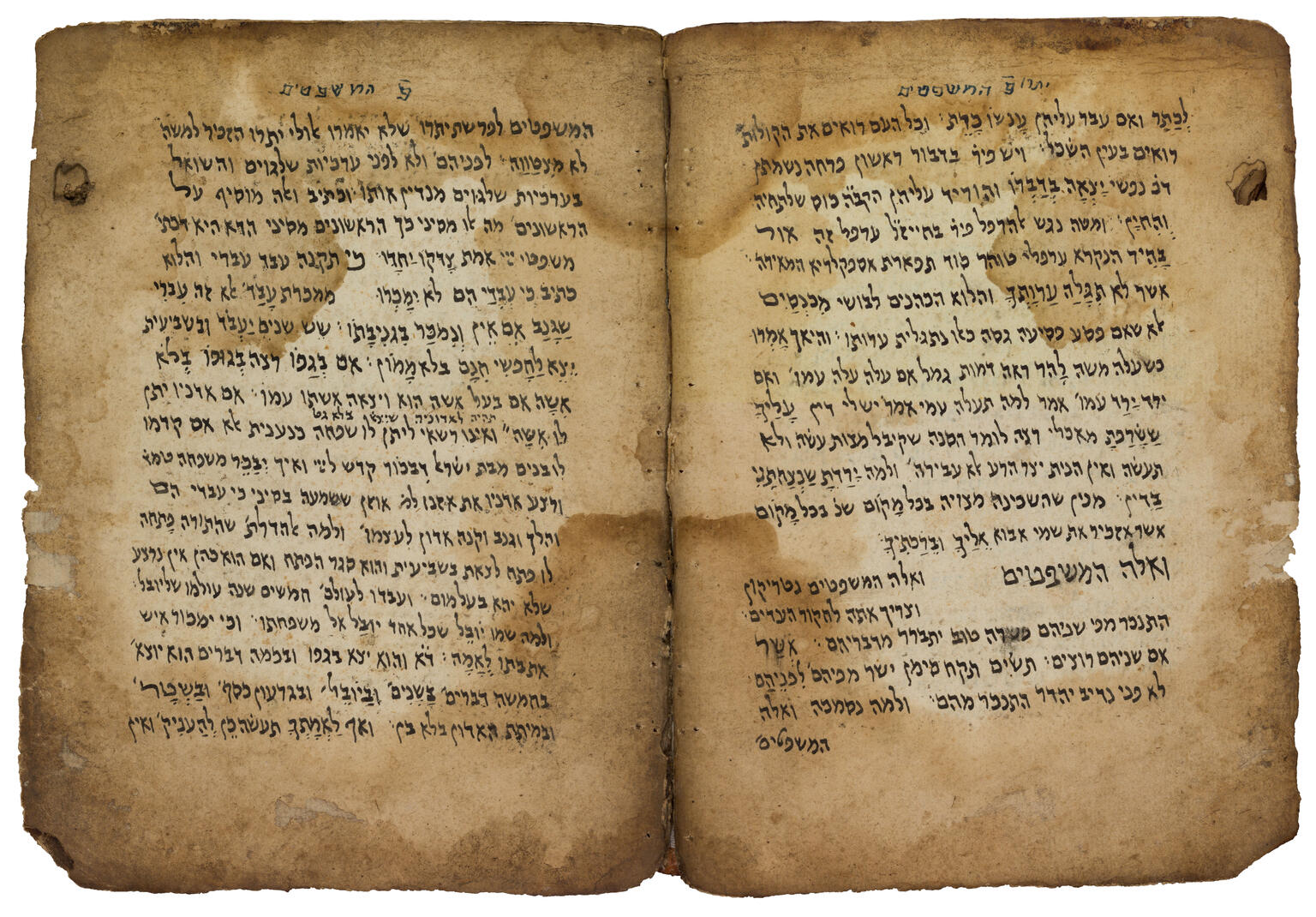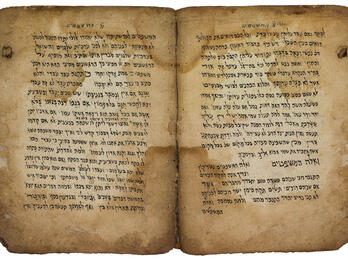Midrash ḥemdat yamim
Shalem Shabazī
Before 1646

Creator Bio
Shalem Shabazī
Very little is known about the life of Shalem (Sālim) ben Joseph, “al-Shabazī,” the most celebrated Yemenite poet, and one of the most acclaimed premodern Jewish poets. According to legend, he wandered Yemen in poverty and became famed as a saint and miracle worker. His tomb in Taiz was a shrine visited by Jews and Muslims alike. His poems, written in Hebrew, Aramaic, or Arabic, focus largely on religious themes, although a few concern secular topics and have scientific themes. Shabazī’s poetry was heavily influenced by the Mawza Exile of 1679; he expressed the suffering and yearning of his generation, drawing faith and hope from the glorious past of the Jews in their own land. Shabazī’s poems exhibit the influence of pre-Lurianic kabbalah and mysticism, and many are dedicated to special occasions or festivals. He also composed ethical poetry. Around 550 of Shabazi’s poems have survived. His poems account for about half of the Yemenite diwan and some have been recorded by modern singers.
Related Guide
Early Modern Jewish Languages
As Ashkenazi and Sephardi Jews migrated eastward, Yiddish and Ladino emerged as distinct languages. Both languages developed literary traditions, as print became more widespread.
Related Guide
Early Modern Literature and the Arts
Jewish literary creativity flourished in the early modern period, dominated by Hebrew poetry that blended religious themes with Renaissance forms.
You may also like



